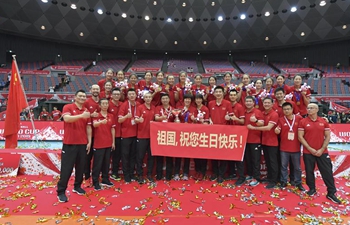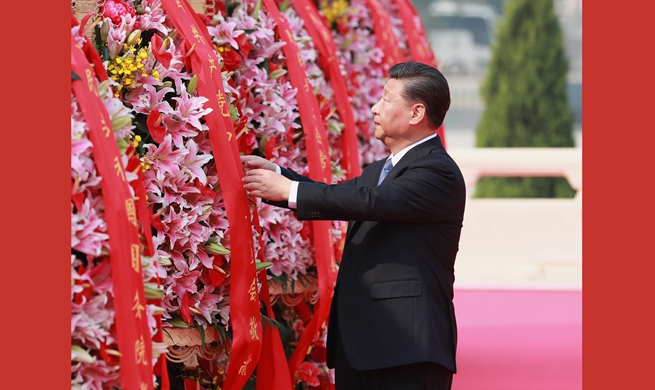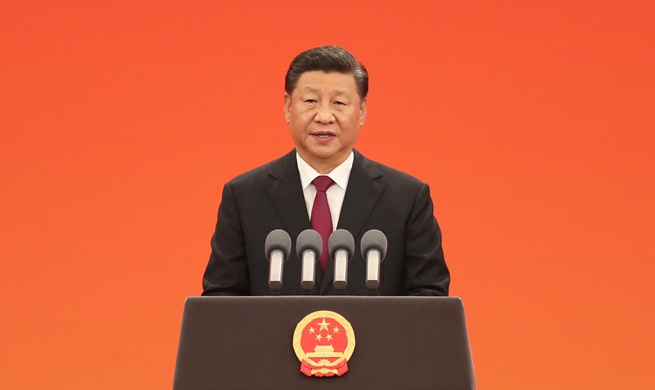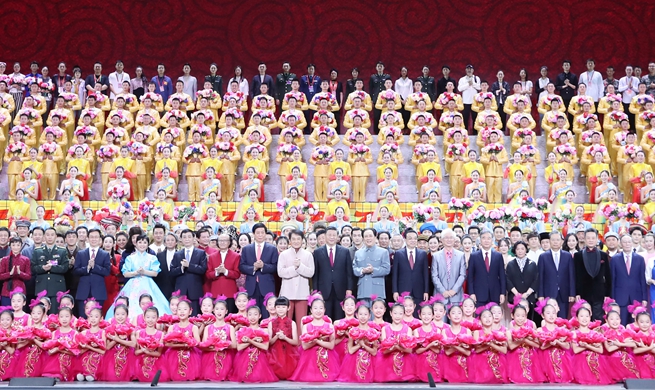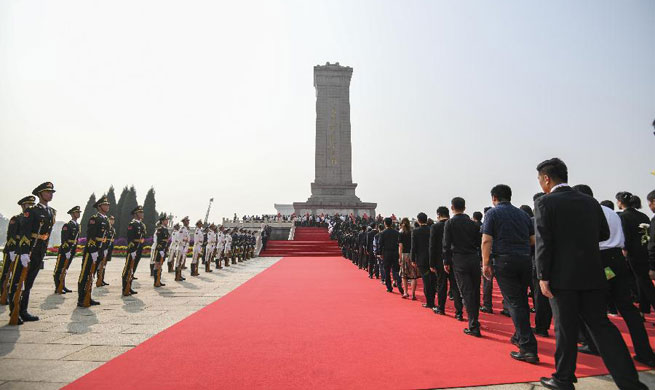WASHINGTON, Sept. 30 (Xinhua) -- U.S. technology policy experts have urged the U.S. government to embrace China's progress in artificial intelligence (AI) and avoid a "zero-sum mentality."
A report released on Monday by the Washington D.C.-based Center for Strategic and International Studies (CSIS) said China's progress in AI could complement and accelerate U.S. AI development, and U.S. policymakers should avoid responding to China's advances "with counterproductive policies that undermine the U.S. innovative capacity to little or no gain."
The Trump administration has put this emerging technology high on the agenda. For many in the U.S. policy community, maintaining U.S. leadership in AI is viewed through "the prism of defeating China's efforts to advance," according to the report's authors William Carter and William Crumpler with CSIS.
Numerous misconceptions and competing narratives around China's innovation economy have made it difficult for U.S. policymakers to understand the AI ecosystem in China, according to the report.
Carter, deputy director of the Technology Policy Program at CSIS, said the two countries heavily benefit from the collaboration and mutual exchange and "the level of integration between the two ecosystems is only likely to deepen as time passes."
China's leading AI companies like Tencent, Baidu and Alibaba have opened AI R&D centers in the United States while major U.S. companies, including Google, Qualcomm, Amazon, IBM and Microsoft, have established AI R&D centers in China, according to the report.
Chinese advances in AI can complement and accelerate U.S. and global AI development through collaboration and competition, said Carter.
The report lauded China's strategic approach to AI, and the strong commitment of policymakers and private business leaders to AI development and adoption as "a potent mix."
Noting that the United States has the top university research system in the world, producing many of the foundational innovations of modern computer science and AI, Carter said "this ecosystem depends on foreign talent."
Nearly 80 percent of graduate students in U.S. computer science programs are international students, and more than a third are from China, according to the report.
Carter and Crumpler criticized restrictive U.S. policies on Chinese investment in emerging and foundational technologies and efforts to limit technology exports to China.
They also argued that cracking down on visas for people with advanced education and skills runs contrary to objectives of maintaining the U.S. leadership.



